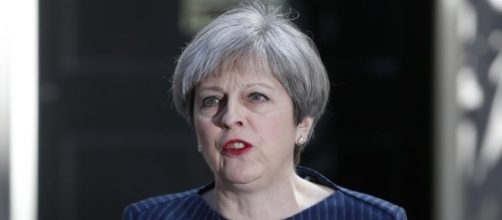Theresa May stunned the political spectrum on Tuesday morning by announcing a General Election in this country for Thursday 8th June.
This will come less than a year after she succeeded David Cameron as Prime Minister after Britain's decision to leave the European Union.
May has decided to play a huge gamble in her political career but is it one that is likely to pay off?
Seeking final approval
Although the current PM will require Parliament approval when they meet on Wednesday in the House of Commons, this is expected to be no more than a formality.
Labour leader Jeremy Corbyn has welcomed the announcement, saying: "I welcome the Prime Minister's decision to give the British people the chance to vote for a government that will put the interests of the majority first."
Other political party leaders have had their say too. Liberal Democrat leader Tim Farron has pushed his party's initiatives forward, indicating; "Only the Liberal Democrats can prevent a Tory majority."
SNP leader Nicola Sturgeon, who is proving to be a stubborn force in May's Brexit vision tweeted: "The Tories see a chance to move the UK to the right, force through a hard Brexit and impose deeper cuts. Let's stand up for Scotland. #GE17.
Former Prime Minister Cameron has backed May's move, saying it is a "brave and right decision."
Westminster divided
In her speech to the nation this morning outside Downing Street, Theresa May has hinted divisions in the best Brexit plan between the major political parties has forced her hand to call this snap election.
She said: "In recent weeks, Labour have threatened to vote against the final agreement we reach with the European Union. The Liberal Democrats said they want to grind the business of government to a standstill. The Scottish National Party say they will vote against the legislation that formally repeals Britain's membership of the European Union. And un-elected members of the House of Lords have vowed to fight us every step of the way."
"If we do not hold a General Election now, their political game playing will continue."
May triggered the Article 50 bill three weeks ago which tendered the process for the UK to leave the European Union. It is a change of heart from the Prime Minister. Back in September 2016, she told Andrew Marr on his BBC Sunday morning programme that she would not be calling a snap election.
Other senior figures within the Cabinet had always denied a vote would be held before the next scheduled election in 2020.
It seems like this announcement has caught even senior political figures and commentators completely off-guard.
Previous history
The last snap election in this country was held back in 1974. Actually, two took place in this particular year. In February 1974, Edward Heath called an election as he tried to gain further support over a planned miners' strike. However, the surprising 'hung parliament' result triggered his resignation from office as Labour won more seats. Six months after being elected, Labour leader Harold Wilson called another election as he was keen to see his government earn a majority in Downing Street.
It worked, although only by a three-seat majority.
In March 1979, opposition leader Margaret Thatcher triggered a vote of no confidence in Labour PM James Callaghan. Callaghan lost the vote by just one and this forced an immediate election which Thatcher won five weeks' later.
Snap elections have been discussed in the past during the terms of John Major and Gordon Brown but nothing materialised. In Major's case, it was because of arguments within his own party, whilst Brown elected not to hold one in 2007 after succeeding Tony Blair when he resigned from power.
A political gamble
Theresa May took office on 13th July 2016 when Cameron stepped down after losing the EU referendum. She has previously held senior roles in the government as Home Secretary and Minister for Women and Equalities.
She serves the Maidenhead constituency, becoming an MP for the first time in the Tory's crushing 1997 defeat to Labour.
She claims a new mandate is in the interest of the British people and is the only way to guarantee stability in the wake of the Brexit vote, which is still having ramifications 10 months on. It is a huge political gamble but with Labour's own public leadership battles and the Liberal Democrats lacking any huge figureheads, it is one she should win. The Conservative majority in 2015 though was only slight and should it be a 'hung parliament,' it could provide more insecurity.
All of a sudden, the political battle has become more intriguing. This unexpected 50-day General Election campaign is underway.

